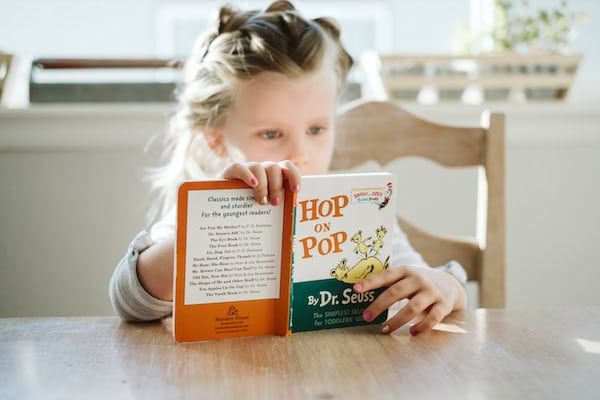Learning how to read is an enormous milestone in a young child's life. For parents, the process can feel daunting and disorienting. Just when you feel like you're getting the hang of parenting, you're suddenly tasked with becoming a defacto teacher. Luckily, there are many apps, games, toys, and other resources available to the modern child to assist with the learning process. Parents might have some difficult questions regarding this literary journey, such as:
- When should my child learn how to read,
- How involved a parent should be in the learning process, and
- What factors determine their ability to read
One factor that has a large impact on a child's readiness and ability to read is phonological awareness.
Phonological Awareness: What Is It?
Phonological awareness is a child's ability to recognize:
- syllables
- rhymes
- sounds at the start/end of words
- sounds within words
In other words, it is the skill of exploring sounds through spoken language and is something that can be practiced before a child reaches school age.
The Importance Of Phonological Awareness
Understanding spoken language and the sounds that make up that language is a necessary precursor to reading written language. The Massachusetts Department of Elementary and Secondary Education explains:
Readers must have awareness of the speech sounds that letters and letter combinations represent in order to move from a printed word to a spoken word (reading), or a spoken word to a written word (spelling) (Moats, 2010). Awareness of the sounds in spoken language is required to learn letter-sound correspondences; to blend sounds together to decode a word; and to "map" words into long-term sight vocabulary (Kilpatrick, 2015).
Without this skill, reading would require an unimaginable amount of memorization. Phonological ability allows one to recognize patterns, making it possible to sort out unfamiliar words by being able to break them down into familiar sounds.
Developing Phonological Awareness At Home
It's never too early to start building the foundation for reading ability, and you don't need a teaching certification to be able to help your child become an avid reader. Easy, impactful ways to develop phonological awareness in babies and toddlers include:
- Reading - Reading books to newborn infants not only helps with the bonding process but early language development as well. For older babies and toddlers, rhyming books are great for developing phonological awareness.
- Singing - Sing-a-longs with older babies and toddlers empower children to actively participate in the rhyming process.
- Playing - Games like "I Spy" ask children to correlate phonetic sounds to the world around them and encourage higher-level thinking. Ask your child to find something in the room that starts with the letter 'S' or any other letter in the alphabet!
- Blending - Practice blending or adding together the sounds that make up a word using phonemes. A Phoneme is a small unit of sound that is capable of conveying meaning. Ask your child to add together phonemes that might look like:
- What word do you get when you add the sound 'p' to 'ig'?
- What word do you get when you add the sound 'c' to 'at'?
Difficulties With Phonological Processing
Difficulties with phonological awareness are usually preventable through early instruction and practice. If there is an anomaly in the areas of the brain associated with speech and language development, educational interventions and assistance may be needed for the child. For example, issues with phonological ability are commonly linked with dyslexia. Children with difficulties relating to phonological awareness might display trouble with:
- Spotting rhymes or alliteration
- Pronouncing new words
- Counting syllables
- Recognizing the correct sounds that correlate to a letter
Screening for phonological processing trouble typically begins in kindergarten. If neurodivergency is noted, such as with dyslexia, specialized instruction can be prescribed to assist the child in learning catered to their individual needs.
What Is Dyslexia & How Is It Diagnosed?
Learning To Read Should Be Fun
While feeling the responsibility of teaching a child to read can feel like a heavy weight to bear for parents, it's important to remember that reading should be fun. It takes time and practice, and you will have support from your child's teachers in daycare, preschool, and school. Many libraries and bookstores have free storytime for babies and toddlers, which reinforces the idea that reading can be a social, enjoyable activity.
At home, simple practice tools like games, songs, and reading aloud will go a long way in helping your child's language and reading ability. If you do notice any trouble with your child's phonological development, it may be worth bringing it up to their teachers or pediatrician who will recommend them for additional testing if necessary.
Phonological awareness is a very strong predictor of reading ability. Because literacy skills have a shocking impact on socioeconomic status, health, and emotional competency it's worth the time to include phonologic skill practice in your little one's routine.
Sources: DESE, DESE, Victoria State Government



